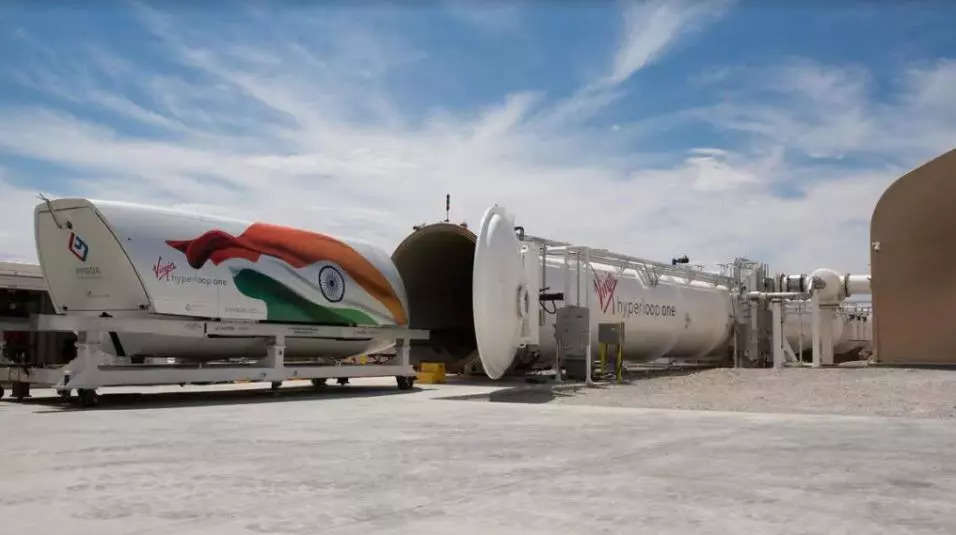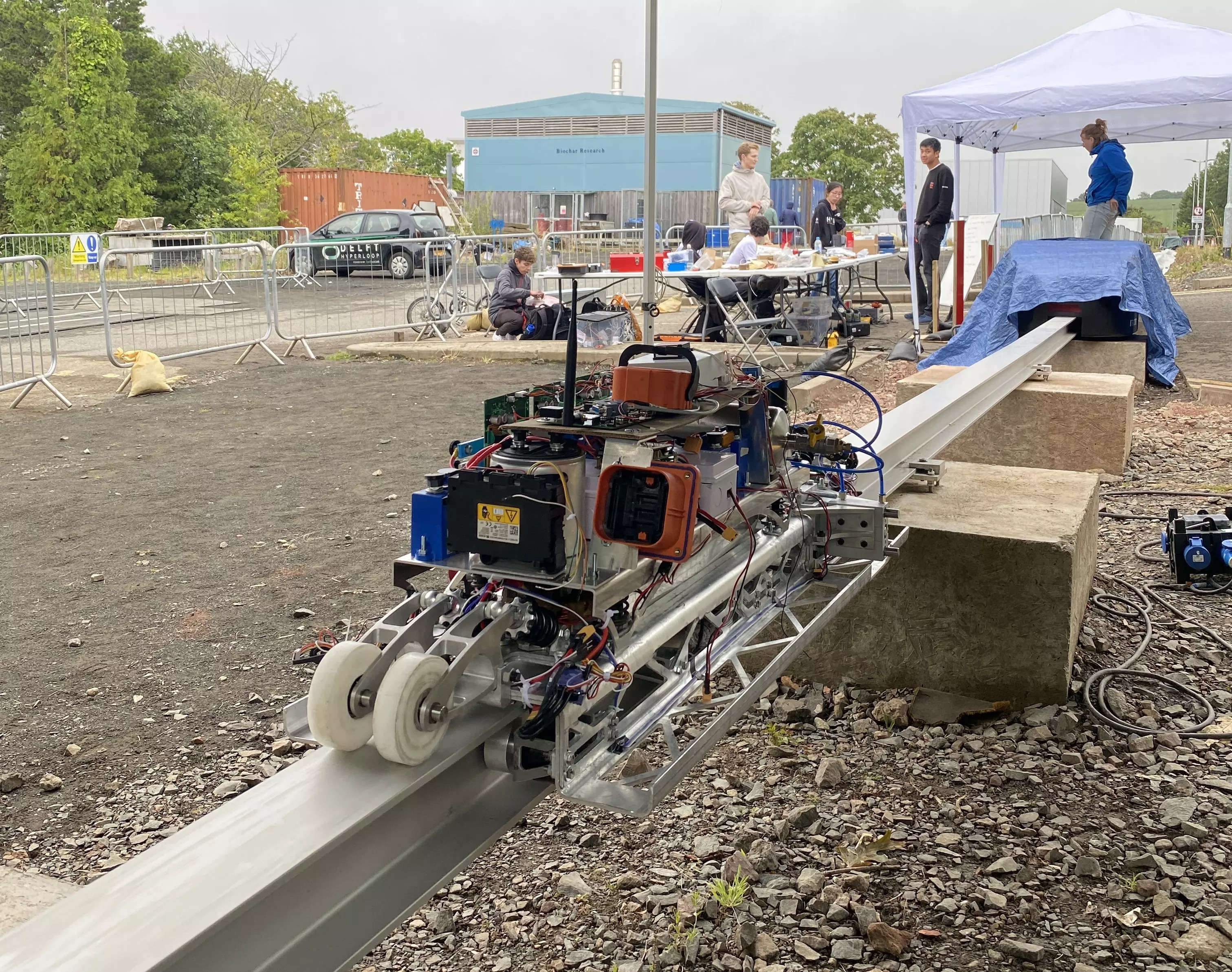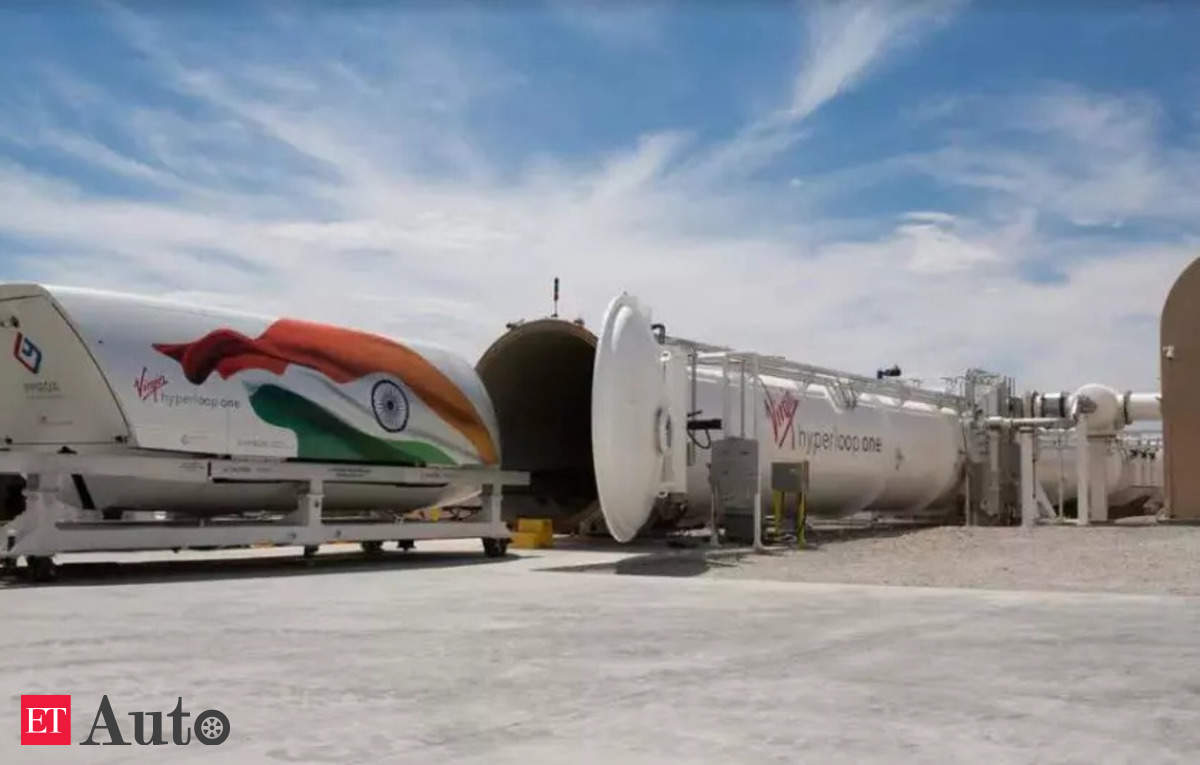
New Delhi: Hyperloop, an ultra-high speed transportation system for passengers and cargo, has three essential working elements: tubes, pods, and terminals. The floating pods carry passengers or goods and travel via tunnels inside a vacuum tube with limited air. The technology works on magnetic levitation with the pod traveling at high-speed velocities to significantly cut down the travel time.
“There are three novel technologies which encompass hyperloop- contactless propulsion, electromagnetic levitation and vacuum. Some of the leading and pioneer institutions have achieved all three of these on a scaled down level and are coming up with a pilot test track to achieve this on a full scale,” explained Ganesh Karandikar, Head- School of Mechanical Engineering, MIT World Peace University (MIT-WPU).
“Once successfully achieved on a full scale through a pilot test track, then can we see its actual realization, first for the seamless movement of cargo and then, gradually for people. While maintaining a similar transportation capacity and requiring only one-fifth of the land space of roads, and half of that of rail, hyperloop as a mass-transportation technology has immense potential,” he said.
Recently, MIT-WPU represented India as ‘Team Vegapod Hyperloop’ in the European Hyperloop Week at the University of Edinburgh in the UK. Among the top six teams globally, they showcased a fully functional hyperloop prototype with a sustainable design using recyclable materials like hemp and flax fiber.

In the IIT Madras’ new ‘Discovery Campus’ at Thaiyur, near Chennai, a 400-m hyperloop testing track is being constructed to go through development stages for commercialisation. A team of engineers have been working on this project named Avishkar since 2018 in partnership with a technology startup named TuTr Hyperloop. In the first phase, the project will be carrying cargo.
In January this year, a lab level advanced version of the pod was unveiled and demonstrated at IIT Madras.
Even though the concept has been around for a long time, it is at an early stage of trial and development by startups, academicians, and organisations.
However, according to a recent PTI report, NITI Aayog Member V K Saraswat said that currently hyperloop is only a study programme and India is unlikely to go in for hyperloop for ultra high-speed trains in the near future as the technology is at a ‘very low level’ of maturity and may not be economically viable at the current juncture.
Saraswat, who is heading a committee to explore the technological and commercial viability of the Virgin Hyperloop technology, further said some foreign companies have shown interest to bring the technology in India but they are at a developing stage.
In 2018, the Maharashtra Government signed a Memorandum of Understanding (MoU) with Richard Branson-led Virgin Group and approved the Virgin Hyperloop-DP World Consortium as the original project proponent for the Mumbai-Pune hyperloop project. The state has deemed hyperloop a ‘public infrastructure exercise’
“Initially, there would be a substantial investment required to establish the infrastructure and system for the hyperloop route. However, over time, the revenue generated from the operation would outweigh the initial costs. The most strategically advantageous proposed hyperloop route in India is the one connecting Mumbai and Pune. This route not only addresses the high demand for passenger transportation between the two cities, but also holds immense economic and commercial significance for the movement of goods and cargo,” Karandikar said.
He believes that a central platform initiated by the government for research groups, student, universities and companies to come together to discuss and deliberate on development of Hyperloop in India will be helpful in the long term.
Beginning of the concept
In August 2013, Tesla and SpaceX CEO Elon Musk proposed the hyperloop concept. Over the years, a handful of companies have been working on developing the technology and globally it is being called as the fifth mode of transportation. California-based Virgin Hyperloop One, formerly known as Hyperloop One, is among the few which are trying to build such a system for passenger travel.
In November 2020, Virgin Hyperloop conducted a test run on a 500-metre track in Las Vegas in the US, traveling with passengers, including an Indian at more than 161 kmph. This was the first hyperloop human trial.
In December 2022, companies working in this area including Hardt, Virgin Hyperloop, Hyperloop Transport Technologies, Nevomo, Swisspod Technologies, TransPod, and Zeleros formed the Hyperloop Association. It is aimed at the development and growth of the emerging new transport market, collaborating with governments and regulatory bodies on related policymaking.









